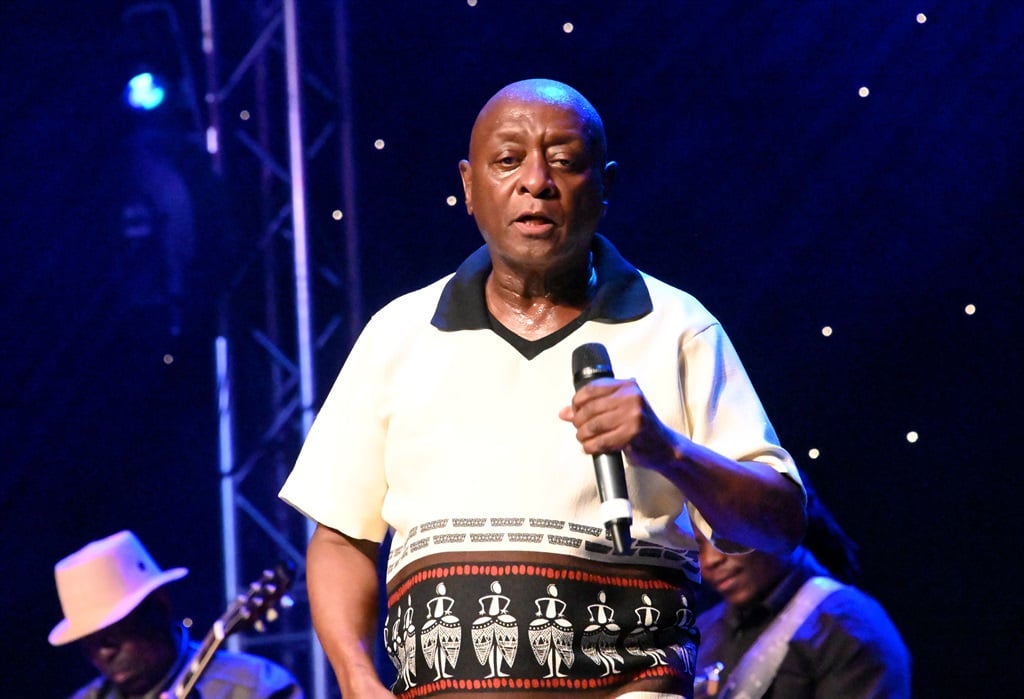
Director of the Centre for Creative Arts at the University of KwaZulu-Natal Ismail Mahomed shares his thoughts on the death and legacy of Mbongeni Ngema, and the public's reaction to the news.
"Mbongeni Ngema was a legend, but don’t sugar-coat his track record," writes Yogan Devan, a Sunday Tribune former news editor, in the Daily Maverick.
Devan's article is a response to both written obituaries and other forms of public expressions of sorrow at the passing of legendary South African theatre-maker, musician and artist, Mbongeni Ngema, who died tragically in a motorcar accident on Wednesday 27 December in the Eastern Cape.
Devan highlights that despite Ngema’s incredible artistic achievements, Ngema had a shady reputation for gender-based violence. He also notes that Ngema colluded and benefitted illegally from the R14-million Department of Health Sarafina! scandal in 1996. Devan’s final argument is that Ngema was a racist and that his song AmaNdiya was aimed at inciting hatred for Indians.
The above are all verifiable facts.
Ngema’s gender-based violence is laid bare in Xoliswa Nduneni-Ngema's biography, Heart of a Strong Woman, as well as in media interviews with Leleti Khumalo.
Both women were iconic figures in the successful making of Ngema's original production of Sarafina! which became a global hit. Both women were married to Ngema and separated from him. Both women carry the violent and brutal scars that he inflicted on them physically and psychologically.
Ngema’s collusion in the Sarafina! scandal is well recorded in the Public Protector’s report that investigated and reported on the scandal to Parliament. A High Court order and a Public Broadcasting Commission, as well strong voices such as that of Nelson Mandela and famed sociologist and human rights activist, Fatima Meer, called Ngema to order for his song, AmaNdiya.
Despite Ngema’s tainted reputation, he up to his death remained a beneficiary of large-scale public funded projects. There is no doubt that Ngema was a beneficiary of the ruling party patronage. He was the producer of the ANC’s centenary celebration. Both President Cyril Ramaphosa and Sport, Arts and Culture Minister Zizi Kodwa have issued press statements lauding his career and expressing grief at his passing.
The passing of Dr Mbongeni Ngema is a significant loss to South African arts. Dr Ngema’s work touched and moved audiences around the world and made an important contribution in telling the South African story@SportArtsCultur @GovernmentZA @DurbanPlayhouse @kzngov @SACulturalObs https://t.co/EUyzphVz0z
— Minister of Sport, Arts & Culture (@zizikodwa) December 28, 2023
Up to his death, Ngema showed no remorse for his collusion or benefitting from the Sarafina! scandal. Neither did he cave into any of the criticism that followed the release of his song, AmaNdiya.
He refused to heed Mandela's advice to publicly apologise to the nation for his divisive conduct. Instead, Ngema argued that his song was intended to do what art must sometimes do — unsettle us in our comfort zones and catalyse debate.
It was only after the release of Nduneni-Ngema's book that he offered a flimsy acknowledgment about his tainted reputation for gender-based violence. He showed no real remorse, and even lesser so, he showed no public attempt at making good for his actions.
Despite extensive media coverage about Ngema’s dark side, news of his death has been greeted with deep sorrow by an array of South Africans that span across race, class, gender and other demographics. Public broadcasters have also offered dedicated airtime to honour him and his work.
READ | OBITUARY: Mbongeni Ngema: The good, bad and ugly of SA's theatre maestro
Does it mean that South Africans who mourn Ngema’s death are naive, forgiving and hold absolutely no sense of critical reflection?
To the contrary, there are many factors that inform why less is currently being said about Ngema the person, than is currently being celebrated as Ngema the creative genius.
That very little is currently being publicly spoken about Ngema's reputation as a woman abuser and as an early and ongoing beneficiary of state capture does not imply that South Africans who mourn his death have no sense of memory.
It is because South Africans are generally holders of memory about how Ngema's creativity spoke up for millions of South Africans in the struggle against apartheid and other forms of racism and oppression that sorrowful reflections about him may seem to indicate that his dark side is currently being whitewashed out of history. It is not!
There must be parallel and multiple platforms for engagement about Ngema and his legacy. There must be space for outrage for his conduct, but there must also be space for recording and celebrating that Ngema’s iconic works such as Woza Albert!, Asinamali!, Sarafina! and others were an essential voice that played a vital part in liberating South Africa from apartheid and upping international resistance against apartheid.
These iconic artistic expressions cannot simply be thrown into a trashcan because he was a flawed man. If we did, we risk erasing a canon of cultural work by particularly black men such as Gibson Kente, Walter Chakela, Welcome Msomi and many others who bear the weight of being flawed men.
It is impossible to separate the artists from the man.
Black male artists such as these men aren’t the making of their own doing. Whilst they and others may have been modern men in the making of their politically-charged work, they were firstly culturally and socially rooted as traditionalists who were raised and lived in a nation before and after apartheid where gender-based violence has been normalised.
Secondly, Ngema was a product and a beneficiary of a failed governing party that since taking power, and which has forgotten about its political ideals, has normalised corruption and a lack of public accountability; and which instead of building better people, has raised more men to line up as pigs at a trough and more men who believe that power is attained through their fists.
In African culture, respecting the dead runs far deeper than sugarcoating their sordid pasts. Respecting the dead in African culture is about respecting the living. It is about giving them the space and the time to grieve the passing of a father, son, uncle and family member.
In the case of Ngema, the bloodline is not only biological. It is also one where his creative voice flows through our hearts, minds and veins, because we hold memories of how we resisted apartheid and brought it to its knees with his songs, dances, music and theatre productions.
Gender-based violence and corruption are not lesser evils than apartheid and oppression. They all carry the same weighting. All we ask for at this time is the space and the time to grieve one more black male artist whose creative genius is once again unfortunately tainted because our pre- and post-apartheid society continues to fail in birthing, nurturing, portraying and catapulting better men in to positions where real social transformation can take place.
Ismail Mahomed is director of the Centre for Creative Arts at the University of KwaZulu-Natal. With more than 30 years’ experience in cultural leadership and multiple awards to his credits, his previous roles include artistic director of the National Arts Festival and CEO of the Market Theatre Foundation. At the latter, he invoked the Protected Disclosures Act and won a case in which he exposed corruption and financial maladministration by the council appointed by former minister of sport, arts and culture Nathi Mthethwa, stopping members of the council from illegally siphoning Christmas bonuses for themselves in violation of the Public Finance Management Act.
*Want to respond to the columnist? Send your letter or article to opinions@news24.com with your name and town or province. You are welcome to also send a profile picture. We encourage a diversity of voices and views in our readers' submissions and reserve the right not to publish any and all submissions received.
Disclaimer: News24 encourages freedom of speech and the expression of diverse views. The views of columnists published on News24 are therefore their own and do not necessarily represent the views of News24.




 Publications
Publications
 Partners
Partners












